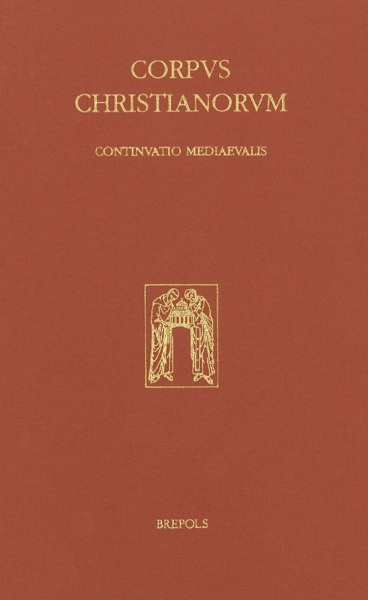
Anonymus
Expositio in Cantica Canticorum saeculi octavi
Pietro Baio, Alessia Miriam Berardi, Rossana Eugenia Guglielmetti (eds)
- Pages: cxxviii + 230 p.
- Size:155 x 245 mm
- Illustrations:3 b/w, 139 tables b/w.
- Language(s):Latin, Italian
- Publication Year:2026
- € 165,00 EXCL. VAT RETAIL PRICE
- ISBN: 978-2-503-61884-5
- Hardback
- Forthcoming (Mar/26)
*How to pre-order?
Editio princeps of an anonymous protocarolingian commentary on the Song of Songs
This volume provides the editio princeps of a protocarolingian anonymous commentary on the Song of Songs, which survived in two manuscripts dated between the eighth and the ninth century; an epitome is also transmitted by a single manuscript dated two centuries later. Although the commentary’s geographical origin is not clear, the author draws his exegetical themes from many different sources, such as Pope Gregory I, the Iberian Gregory of Elvira, Bede and, above all, Apponius, whose work is rarely used by subsequent authors due to its length and complexity. Both because of the use of these different sources and the author’s lack of dexterity in organizing such a multiplicity of subjects into a unitary exposition, the commentary’s syntax is wanting, resulting in a fragmentary discourse. Nevertheless, this commentary provides the scholarly community with a significant example of the “ordinary” exegetes’ activity and their independence from their sources’ original form. The edition of this work also makes a remarkable contribution to the understanding of the early medieval exegetical tradition on the Song of Songs, since it allows us to go beyond the mere knowledge of the genre’s masterpieces.
Il volume presenta l’edizione critica di un commento anonimo al Cantico dei Cantici del periodo protocarolingio, trasmesso nella sua versione completa da due manoscritti prodotti tra l’ottavo e il nono secolo, e in forma di epitome in un codice dell’undicesimo secolo. Benché l’origine geografica del commento non sia del tutto certa, è chiaro però che l’autore recupera i temi esegetici da varie fonti, tra cui l’iberico Gregorio d’Elvira, Gregorio Magno, Beda, e, soprattutto, Apponio, il cui commento al Cantico è raramente utilizzato a causa della sua complessità e lunghezza. L’uso di fonti così diverse unito alla limitata capacità dell’autore di organizzarle in un’esposizione unitaria produce una sintassi e un discorso frammentati. Tuttavia, questo commento è un esempio prezioso per comprendere l’attività di un esegeta “ordinario”, e per coglierne l’indipendenza dalla forma originale delle fonti. L’edizione di tale opera costituisce anche un notevole contributo per la comprensione della diffusione della tradizione esegetica del Cantico dei Cantici, in quanto permette di andare oltre la mera conoscenza delle opere fondative del genere.





